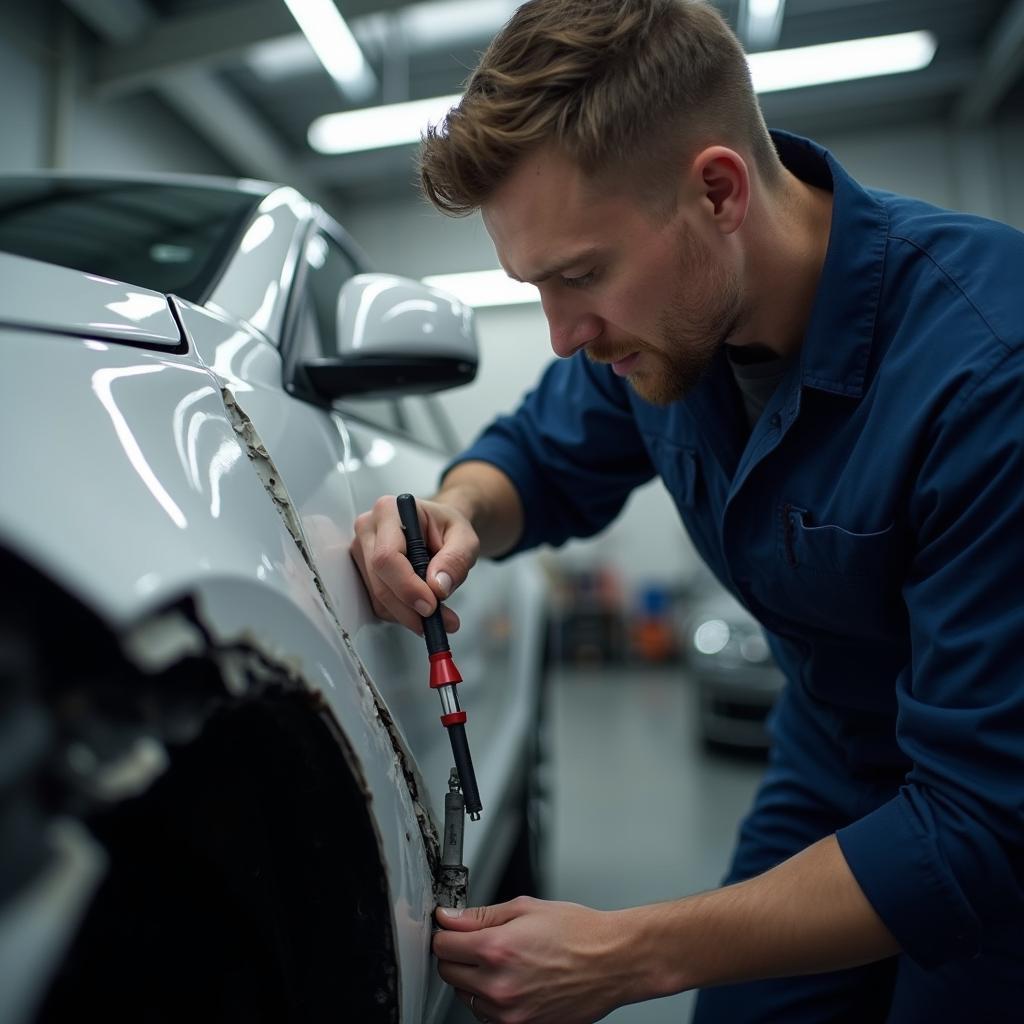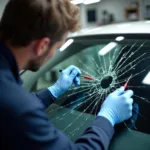The world of car body repair is full of jargon, myths, and conflicting advice. One minute you might hear whispers about “car body repair diss” and the next, someone’s trying to sell you a miracle fix-all solution. But what’s the truth behind the rumors? And how can you be sure you’re getting the best possible repair for your vehicle? This comprehensive guide dives deep into the world of car body repair, debunking common misconceptions and arming you with the knowledge to make informed decisions.
Understanding the Lingo: What Does “Car Body Repair Diss” Even Mean?
You’ve likely come across the term “diss” in online forums or overheard it in auto shops. It’s often used casually to refer to negative reviews, criticisms, or disagreements within the car repair community. In the context of “car body repair diss,” it likely points to controversies, debates, or differing opinions regarding specific repair methods, techniques, or even individual shops.
The internet is a double-edged sword. It provides a platform for valuable information sharing, but it also opens the door to misinformation. It’s crucial to approach online discussions about car body repair with a healthy dose of skepticism. Don’t take everything you read as gospel truth.
Common Car Body Repair Myths Debunked
The internet is awash with myths about car body repair. Let’s debunk some of the most prevalent:
1. “All Dents Require a Complete Panel Replacement.”
This is simply not true. Advancements in car body repair technology have made it possible to repair even severe dents without resorting to full panel replacements. Techniques like paintless dent repair (PDR) can effectively remove minor dents and dings without affecting the original paint job.
2. “DIY Car Body Repair is Just as Good as Professional Work.”
While there are DIY solutions for very minor scratches or touch-ups, attempting complex car body repairs yourself can be risky. Car body repair requires specialized tools, knowledge, and experience to ensure the repair is done correctly and safely. A poorly executed DIY job can lead to more extensive damage and ultimately cost you more in the long run.
3. “You Have to Use the Repair Shop Recommended by Your Insurance Company.”
While your insurance company might have a network of preferred shops, you have the right to choose your own repair shop. It’s your car, and you should feel confident in the hands of the professionals working on it. Do your research, read reviews, and choose a shop with a proven track record of quality repairs.
Choosing the Right Car Body Repair Shop: Your Guide to Avoiding a “Diss”
Selecting a reputable car body repair shop can be the difference between a seamless repair experience and a potential “diss.” Here’s what to look for:
- Certifications and Accreditations: Look for shops certified by reputable organizations such as I-CAR (Inter-Industry Conference on Auto Collision Repair). These certifications indicate that the shop meets industry standards for training and equipment.
- Online Reviews and Testimonials: Websites and online directories can provide valuable insights into past customer experiences. Pay attention to both positive and negative reviews to get a balanced perspective.
- Warranty: A reputable shop will stand behind its work with a solid warranty. Inquire about the warranty coverage and duration before committing to a repair.
- Clear Communication: Choose a shop that prioritizes open and transparent communication. They should be willing to explain the repair process in detail, answer your questions, and provide regular updates on the progress of your vehicle.
Conclusion: Navigate Car Body Repair with Confidence
The world of car body repair doesn’t have to be shrouded in mystery or fueled by online “diss.” By arming yourself with the right information, understanding industry jargon, and choosing a reputable repair shop, you can ensure your vehicle receives the best possible care. Remember, knowledge is power, especially when it comes to your car.



